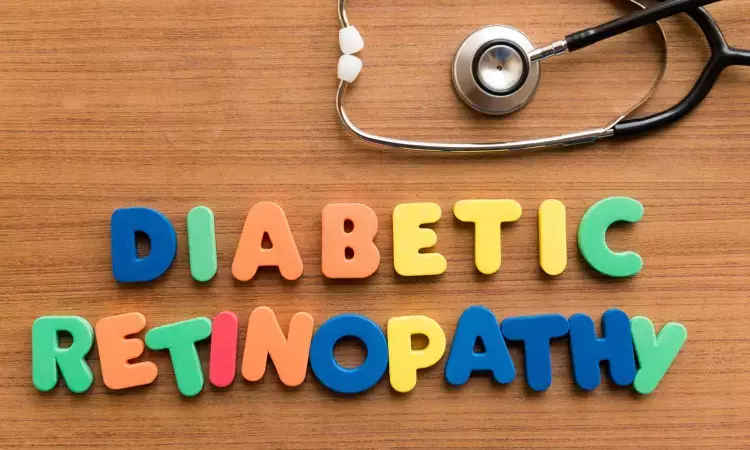- Home
- Medical news & Guidelines
- Anesthesiology
- Cardiology and CTVS
- Critical Care
- Dentistry
- Dermatology
- Diabetes and Endocrinology
- ENT
- Gastroenterology
- Medicine
- Nephrology
- Neurology
- Obstretics-Gynaecology
- Oncology
- Ophthalmology
- Orthopaedics
- Pediatrics-Neonatology
- Psychiatry
- Pulmonology
- Radiology
- Surgery
- Urology
- Laboratory Medicine
- Diet
- Nursing
- Paramedical
- Physiotherapy
- Health news
- Fact Check
- Bone Health Fact Check
- Brain Health Fact Check
- Cancer Related Fact Check
- Child Care Fact Check
- Dental and oral health fact check
- Diabetes and metabolic health fact check
- Diet and Nutrition Fact Check
- Eye and ENT Care Fact Check
- Fitness fact check
- Gut health fact check
- Heart health fact check
- Kidney health fact check
- Medical education fact check
- Men's health fact check
- Respiratory fact check
- Skin and hair care fact check
- Vaccine and Immunization fact check
- Women's health fact check
- AYUSH
- State News
- Andaman and Nicobar Islands
- Andhra Pradesh
- Arunachal Pradesh
- Assam
- Bihar
- Chandigarh
- Chattisgarh
- Dadra and Nagar Haveli
- Daman and Diu
- Delhi
- Goa
- Gujarat
- Haryana
- Himachal Pradesh
- Jammu & Kashmir
- Jharkhand
- Karnataka
- Kerala
- Ladakh
- Lakshadweep
- Madhya Pradesh
- Maharashtra
- Manipur
- Meghalaya
- Mizoram
- Nagaland
- Odisha
- Puducherry
- Punjab
- Rajasthan
- Sikkim
- Tamil Nadu
- Telangana
- Tripura
- Uttar Pradesh
- Uttrakhand
- West Bengal
- Medical Education
- Industry
Treatment of diabetic retinopathy with Intravitreous aflibercept does not improve visual acuity: JAMA

USA: Treatment of nonproliferative diabetic retinopathy (NPDR) with aflibercept did not improve visual acuity but resulted in significant anatomic improvement versus sham treatment at four years, a recent study has shown. The study results appeared in the Journal of the American Medical Association (JAMA) on February 7, 2023.
“This study indicates that monitoring patients regularly for vision-threatening diabetes complications and treating eyes only as needed is the best approach,” said Raj Maturi, M.D., Indiana University School of Medicine and Retina Partners Midwest, who is the protocol chair for the four-year study.
The clinical study from the DRCR Retina Network found that early treatment of diabetes-related eye disease slowed the progression to severe disease; it did not improve visual acuity compared with treating more severe disease once it developed.
Anti-vascular endothelial growth factor (anti-VEGF) drugs can substantially decrease the risk of vision loss from diabetic retinopathy. However, eye care providers have been unsure when treatment should start to achieve the best long-term outcome. Anti-VEGF is given by injection into the eye, so physicians must weigh the risks for side effects and the expense and inconvenience of treatment against potential treatment benefits.
Diabetic retinopathy occurs when diabetes affects the blood vessels of the eye’s light-sensing retina. In its early stages, diabetes weakens retinal blood vessels, causing fluid to leak into the surrounding retina. This stage is called non-proliferative diabetic retinopathy (NPDR). Fluid buildup in the retina, called diabetic macular edema, is a complication of diabetic retinopathy and can lead to vision loss. The progression of the disease to proliferative diabetic retinopathy (PDR), where new, abnormal blood vessels begin to grow in the retina, can also threaten vision.
NEI-funded researchers evaluated whether treating people with NPDR with the anti-VEGF drug Eylea (aflibercept) could prevent vision loss. The study enrolled 328 participants, with 399 study eyes (some participants had two eyes that met criteria for enrollment in the study; others only had one study-eligible eye). Preventive anti-VEGF injections were given in 200 eyes at one month after enrollment, two months, and four months, and then every four months over two years. Preventative treatment continued every four months through four years unless NPDR improved to only mild disease. Sham injections (without drug) were used in 199 eyes over the same period. Any eye that developed a vision-threatening complication, such as macular edema or PDR was treated with additional anti-VEGF injections as necessary.
Two-year results of the study suggested that while preventive treatment reduced the risk of developing diabetic macular edema or PDR, there was no evident benefit to vision. These final, four-year results reinforce the earlier finding, with no statistical difference in either visual acuity or rates of vision loss between the two groups.
“We expected early treatment to prevent progression of diabetic retinopathy, but even with preventative injections, about one-third of eyes developed vision-threatening complications,” said Adam Glassman, Jaeb Center for Health Research, Tampa, Florida, who directs the DRCR Retina Network coordinating centre.
Over the four-year study, 34% percent of eyes receiving preventive treatments showed disease progression, compared with 57% of those in the sham group. On average, those in the preventive group received 11 injections, compared with an average of three in the sham group.
“While the individual risk of complications per injection is low, the risk increases with each additional injection,” said Jennifer Sun, M.D., M.P.H., Joslin Diabetes Center, Harvard Medical School, Boston, and chair of diabetes initiatives for the DRCR Retina Network. “The results of this study indicate that the anatomic benefit from early anti-VEGF treatment does not result in improved visual acuity, and so it may not be worth the risk and inconvenience to the patient of repeat preventive injections for NPDR.”
Reference:
Maturi RK, Glassman AR, Josic K, et al. Four-Year Visual Outcomes in the Protocol W Randomized Trial of Intravitreous Aflibercept for Prevention of Vision-Threatening Complications of Diabetic Retinopathy. JAMA. 2023;329(5):376–385. doi:10.1001/jama.2022.25029
Dr Kamal Kant Kohli-MBBS, DTCD- a chest specialist with more than 30 years of practice and a flair for writing clinical articles, Dr Kamal Kant Kohli joined Medical Dialogues as a Chief Editor of Medical News. Besides writing articles, as an editor, he proofreads and verifies all the medical content published on Medical Dialogues including those coming from journals, studies,medical conferences,guidelines etc. Email: drkohli@medicaldialogues.in. Contact no. 011-43720751


